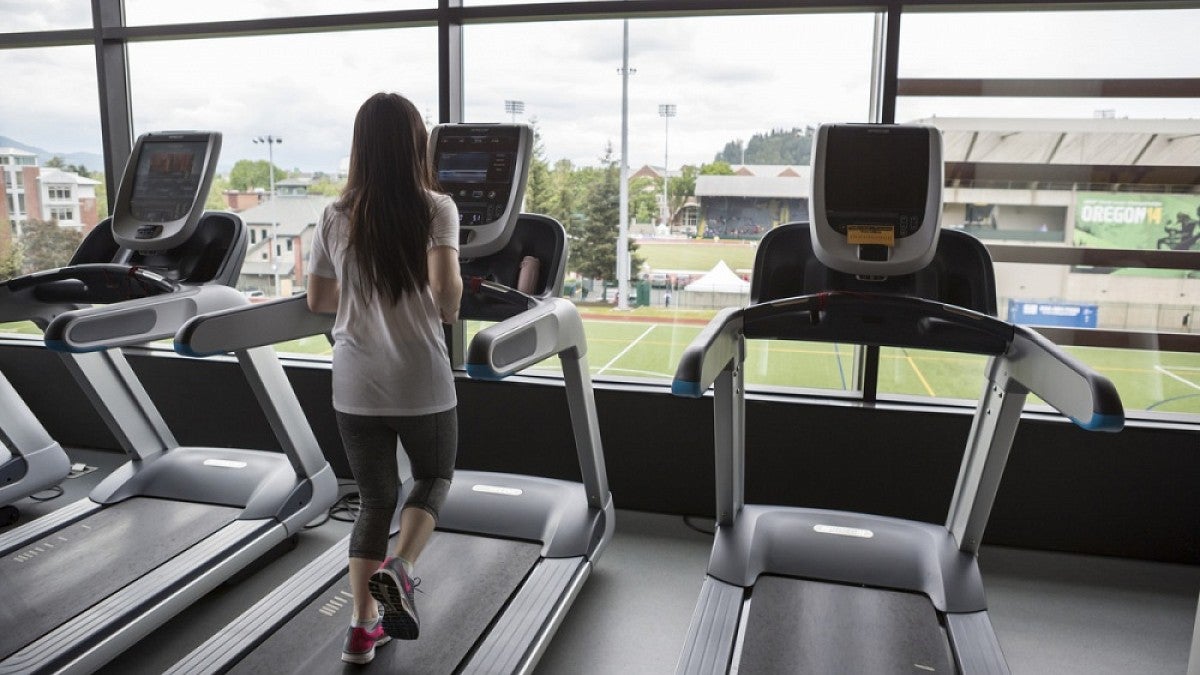Across-campus efforts focusing on student health and wellness activities have put the University of Oregon in the national spotlight.
The UO was among seven higher education institutions chosen as winners of a Healthy Campus Award. The nonprofit organization Active Minds, based in Washington, D.C. announced the winners.
“The award seeks to recognize campuses that prioritize student health,” said Angela Long, director of health initiatives of the University Health Center. “In addition to comprehensive student health services, the UO has prioritized student health through the establishment of the Duck Nest, peer-to-peer health and mental health programs, and multitiered prevention programs that address communicable disease, sexual violence and suicide.”
Incoming students are also made aware of these programs as they participate in IntroDUCKtion, the campus orientation, Long said.
The other 2018 Healthy Campus Award winners were: Arizona State University, Duke University, Kent State University, Jefferson Community College of New York, University of South Carolina and University of South Florida. The award program began in 2015.
“We are honored to receive this significant national award,” said Roger Thompson, vice president for student services and enrollment management at the UO. “This recognition enables the UO to showcase our comprehensive set of student health and wellness activities across campus, including the University Health Center, University Counseling Center, dean of students and student-led activities.”
This year’s winners all offer a range of comprehensive and integrated health and mental health services. Several include a variety of wellness supports, including physical health services, counseling, mental health care, fitness programs and sexual violence prevention education at a single, purpose-built center on campus.
The winning schools provide students with immediate access to needed services; some have 24-hour on-call services. Some of them also engage students in their mental health programs through advocacy, feedback and peer education.
At the UO, Long said, several campus innovations and accomplishments geared to foster health and wellness combined to put the campus on the winners’ list. They include:
• Establishing the Duck Nest campus wellness center, established with a gift from PacificSource, and Duck Nest programming. More than 6,760 students have visited the Duck Nest since fall 2016, and its programming has reached more than 8,147 students.
• Student health and wellness champions made up of various student-led groups that support campuswide health and mental health services through advocacy, feedback and peer education.
• Efforts by student advocates during IntroDUCKtion to speak to incoming students and their parents about health and wellness, stress reduction and access to care.
• Counseling Center services, including individual and group therapy, crisis support, consultation, community referrals, transgender support and Collegiate Recovery Center.
• University Health Center services, which, in addition to primary care, psychiatry and specialty care, include laboratory and X-ray, pharmacy, physical therapy, dental and transgender care.
• Multitiered suicide prevention activities, featuring teams that explore ways to prevent suicides on campus through a variety of programs, evidence-based intervention training for faculty, staff and students and a student-led prevention outreach team.
• A sexual wellness advocacy team, a group of students who address sexual assault and relationship violence through such strategies as interactive, theater-based workshops and other approaches designed to spur change on campus.
• Meningitis prevention programming and messaging to encourage students to reduce their risk of meningococcal disease.
• Use of social media, an effort that goes through multiple channels to spur discussion and amplify health and wellness messages.
—By Jim Barlow, University Communications


